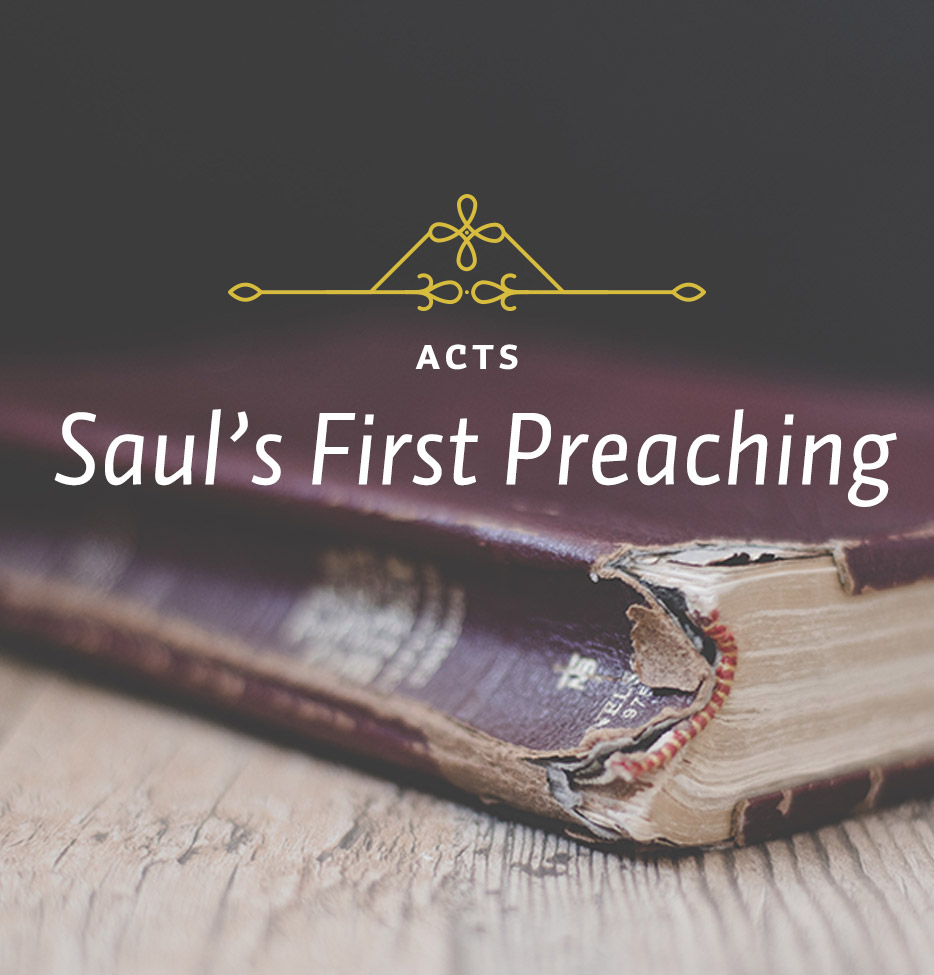It is sometimes helpful to compare parallel accounts of Bible stories. This is because parallel accounts are generally not quite identical, and the variations usually throw light on one another or on the meaning of the passage in which each occurs. That is the case with the stories of Paul’s conversion. There are three of these accounts in Acts—in chapters 9, 22 and 26—and Luke, the author, makes different points in each one.
There is also different information in each. When we read Acts 9, we find Paul asking a question of Jesus which was: “Who are you, Lord?” (v. 5). In response Jesus told him, “I am Jesus, whom you are persecuting. Now get up and go into the city, and you will be told what you must do” (vv. 5-6). In that account, according to the best texts (as well as most English versions), the only question Paul asked was: “Who are you?” However, when we compare Acts 9 with Acts 22, we find that Paul also asked a second question: “What shall I do, Lord?” (v. 8). This is an important addition to the story and a significant combination of ideas, because together the two questions form a sound basis for a strong Christian life.
Many people approach Christianity on the basis of the second question only. They want to know what to do. So they become great activists and rush about doing many good things. This is not necessarily true Christianity. On the other hand, others ask, “Who are you, Lord?” They are the speculative ones, the theologians. They love doctrine, but they are not very interested in practical matters. They do not want to know what to do; they want to know what to think. But this is not necessarily a true form of Christianity either. We need both.
Christianity begins with the question, “Who are you, Lord?”
That is because the deity of Jesus Christ is the foundation for everything that follows. Without that we rush around doing things that appeal to us—things that seem good, but are not necessarily the Lord’s plan for us. We cannot leave out the first question. But having established that base, we also need to ask the second question: “What shall I do?” This is because God has appointed certain good works to be done by every Christian (Eph. 2:10).
Paul got it right from the very beginning. He began with the question, “Who are you, Lord?” But then he submitted himself to this one who was the Lord and asked quite properly, “What will you have me do?”
There is something else that shows up when we compare Scripture with Scripture. We get the impression from the verses that describe Paul’s early ministry in Acts 9 that the events recorded seem to have happened very quickly. Luke uses phrases like “several days” (v. 19) and “after many days had gone by” (v. 23). That sounds like maybe a week or two. But we learn, when we compare this with what Paul says in Galatians, that it was actually a three year period. Sometime during this period Paul went into Arabia and returned to Damascus. Then after he had returned to Damascus, three years now having passed either in Damascus or in Arabia, he went to Jerusalem. These time details teach that even the great Apostle Paul needed significant time for preparation.
This does not mean that Paul was not ready to speak for Jesus, however. We are told in this section that as soon as he was converted and had received his sight again, “At once he began to preach in the synagogues that Jesus is the Son of God” (v. 20).
Sometimes, when people are talking about their conversion, they say things like, “Well, I’m converted, but I want to be inconspicuous about it. I want to be a silent Christian.” I doubt if that is possible, though I suppose there are people who are naturally shy and afraid to speak up for that reason or another. Other people no doubt have a difficult time speaking for Christ because of circumstances—pressure from their parents or friends, a hostile government, or whatever. But although it is often hard, at some point early in the life of a person who has come to believe on Jesus Christ there must be a verbalized expression of that faith. If there is not, it is doubtful whether the new life of Jesus Christ is really there.






